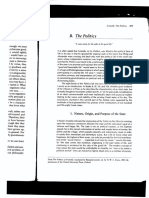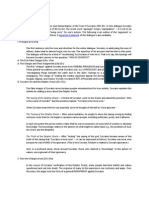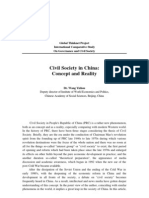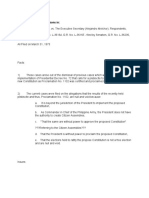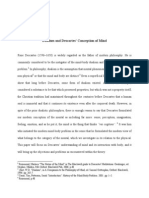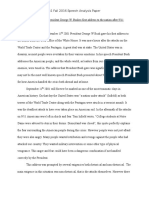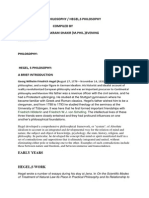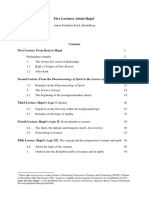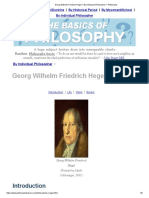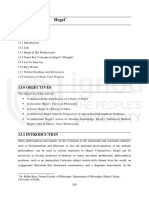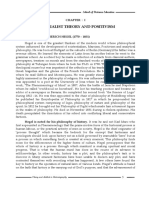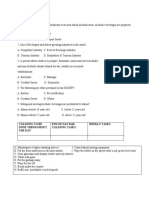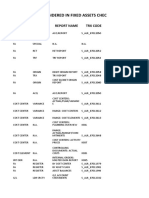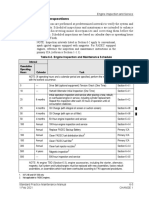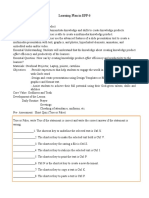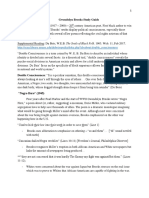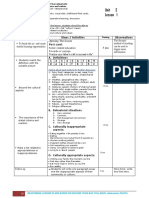0% found this document useful (0 votes)
266 views15 pagesHegel
This document provides an overview of the German philosopher Georg Wilhelm Friedrich Hegel. It discusses his major works and philosophical system. Hegel developed an all-encompassing system of philosophy that sought to explain all knowledge as part of an interlinked whole. His most important works included The Phenomenology of Spirit, The Science of Logic, and the Encyclopedia of Philosophical Sciences.
Uploaded by
Noime BatingCopyright
© © All Rights Reserved
We take content rights seriously. If you suspect this is your content, claim it here.
Available Formats
Download as PPTX, PDF, TXT or read online on Scribd
0% found this document useful (0 votes)
266 views15 pagesHegel
This document provides an overview of the German philosopher Georg Wilhelm Friedrich Hegel. It discusses his major works and philosophical system. Hegel developed an all-encompassing system of philosophy that sought to explain all knowledge as part of an interlinked whole. His most important works included The Phenomenology of Spirit, The Science of Logic, and the Encyclopedia of Philosophical Sciences.
Uploaded by
Noime BatingCopyright
© © All Rights Reserved
We take content rights seriously. If you suspect this is your content, claim it here.
Available Formats
Download as PPTX, PDF, TXT or read online on Scribd
/ 15


